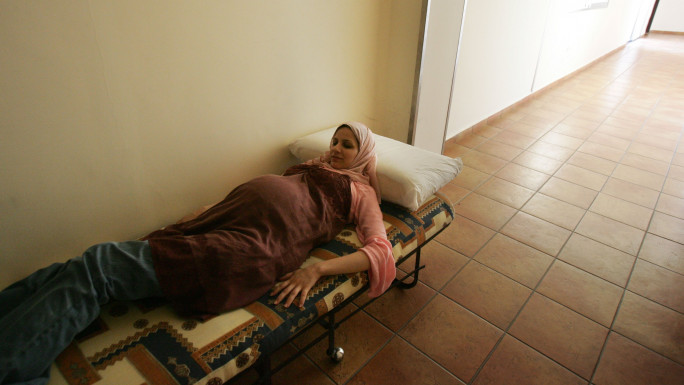Afghans in UAE fear nightmare of Taliban rule
Afghan restaurant owner Aziz Ahmed, who has called the UAE home for over 20 years, says the Taliban's return to power is little short of a nightmare.
"Even if my mother dies, I will not cry (as) much as I cried yesterday, but we have no option left," Ahmed, 32, told AFP.
"Now, we are hoping for 'good'. We are hoping that these people have changed," he said the day after the Taliban seized Kabul.
The Taliban, who overran Afghanistan in 10 days, previously ran a brutal form of Islamist government when they ruled between 1996 and 2001, confining women to home, forbidding entertainment and publicly beating and executing prisoners.
Gholameddine, the manager of Ahmed's Sabir Afghan restaurant in Dubai, said he would be happy to return home only once the country is safe and secure.
"I've been living in the UAE for about six years," he told AFP.
But his dream, he said, would be to earn his living at home in Afghanistan where his elderly parents live.
Ahmed, who fled the Taliban for Dubai in the 90s, said the group's recent pledges to govern with more restraint were reassuring - if true.
"When the name Taliban comes to your mind, you feel terror, you think of killings, you think of beatings. It's a bad dream," said Ahmed.
The Taliban entered Kabul on Sunday after the Afghan government collapsed without the support of the US military, which invaded in 2001 following the September 11 attacks.
The Taliban had governed Afghanistan between 1996 and 2001, imposing a strict interpretation of Islamic sharia law, before being ousted and launching an insurgency.
During those years, Taliban courts handed out extreme punishments, including chopping off the hands of thieves and stoning to death women accused of adultery.
Ahmed said the Taliban are now saying "they changed".
"We are hoping and desperately waiting for that change to be convinced."
According to the Afghan consulate in Dubai, one of seven emirates that make up the UAE, the Gulf country is home to approximately 150,000 citizens.
Many of them run successful businesses, while others work in shops, restaurants and construction.
In the weeks leading to their return, the Taliban's leadership have sought to show a softer side, saying people have nothing to fear.
They have also pledged there would be no retribution against those who supported US-backed forces.
"I need to see concrete changes, they must be visible not just talk," said Ahmed, who wears the traditional Afghan dress and sports a beard.
"I need to see ladies... moving freely," he added.
Under the harshline version of sharia law which the Taliban imposed during their previous rule, women and girls were mostly denied education or employment.
Full face coverings were mandatory in public and they could not leave home without a male companion.
"In Islam, nothing is by force. You cannot force me to pray, you cannot force me follow Islam, you cannot force me to let my beard (grow)," Ahmed said.
Other Afghans in Dubai who spoke to AFP were more confident that the new Taliban rule would bring stability to their war-wracked country.
"Taliban, is not a problem," said Ezzatollah, who works at an Afghan bakery in the Al-Barsha residential area of Dubai.
"I'm not scared to go back home," he said, as he prepared naan bread for a group of customers.
But according to Ahmed many Afghans, including his own family, are deeply worried about what the future will hold.
"They are... scared, and I keep telling them to calm down," he said.
"These (Taliban) are illiterate people, they are not educated. Without an education, how can you run the government? It's not possible.
"When we moved to the UAE, there was Taliban rule, and now... they're back."
![The Taliban have made sweeping gains across Afghanistan in recent days [AFP]](/sites/default/files/styles/large_16_9/public/2021-07/GettyImages-1233969888.jpg?h=199d8c1f&itok=7O5k989y)






 Follow the Middle East's top stories in English at The New Arab on Google News
Follow the Middle East's top stories in English at The New Arab on Google News
![Gazans reel after Israel strike [Getty]](/sites/default/files/styles/image_330x185/public/2183300682.jpeg?h=a5f2f23a&itok=fN-GAQGE)

